For many a TechCruncher, the past week has been the same as most. Break some news, go to some events, turn the world on with your smile… you know the drill. But for John Biggs, Josh Zelman and I (and at times Matt Burns), this week has been a whirlwind of crazy awesome parties, Southeastern drawls, incredibly cool startup pitches, and an amazing amount of both pork and beer.
It’s the Southeast Meetup tour ya’ll, and it’s coming to a close tonight. We’ve hit Atlanta, Raleigh-Durham, Charlotte, and now we’re headed to Greenville, South Carolina. (As a side note, the location has changed. We’ll now be holding the event at The Overlook Grill – 601 South Main Street Greenville, SC 29601.)
It’s been a long ride, but a great one. In fact, we’ve invited at least two dozen companies to apply for Disrupt — yep, that’s how cool these companies are.
It’s amazing to look for startups outside of Silicon Valley and Silicon Alley and find an abundance of exactly that. Hopefully, the last spot on this totally successful meetup tour will bring more of the same.
Again, the location has changed, so if you’re coming tonight be sure to familiarize yourself with The Overlook Grill – 601 South Main Street Greenville, SC 29601.
Here’s another look at our sponsors:
Sponsors:

Honda has long viewed itself as a mobility company, focused on creating new value for its customers and society through innovations developed from the initiative and original thinking of Honda associates around the world. The willingness to pursue new dreams for the customer, which Honda expresses as “The Power of Dreams,” has been at the core of the company’s success and comes not only from new ideas but also from the determination of Honda associates to make these ideas come true for the customer. By creating new value for its customers — and by focusing on areas of critical social concern, such as the environment — Honda hopes to gain recognition throughout the world as a company that society wants to exist.
Savannah:

The Creative Coast is a non-profit organization supported by The City of Savannah and SEDA. We exist to nurture the members of our community engaged in creative or innovative endeavors and to cultivate an environment in which they can thrive.

Rails Machine is a full-service web operations and hosting company. We’re a small team of experienced, dedicated, and focused people who have a genuine interest in technology and enjoy working with and giving back to the Ruby on Rails community. We founded Rails Machine in 2006 to create the ultimate hosting environment for Rails applications.
Atlanta:
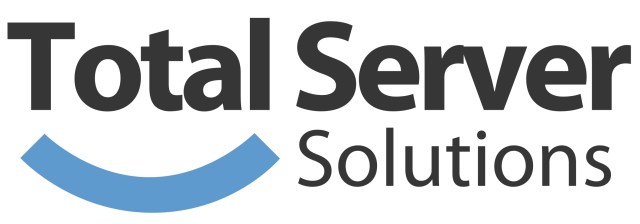
Total Server Solutions was founded in 2005 with the goal of providing unsurpassed support and technical services to the web hosting community. Over the years, Total Server Solutions has grown to offer some of the finest colocation facilities in the world as well as fully managed dedicated server offerings, custom solutions, and cloud computing services.

Thumb Friendly helps local businesses and national brands acquire new customers with powerful mobile marketing strategies. With web access at their fingertips, mobile users are ready to learn, ready to interact, and ready to buy; but a mobile optimized website is only the beginning. Our m360 Strategy Plan is a complete management program proven to drive new visitors to your site, retain them with a great user experience, and convert them into revenue generating customers. Our solution tracks and records visitor engagement through a sophisticated monitoring program. The real power behind m360 is our consultative approach to building a mobile marketing strategy. We provide detailed reports and analysis of your campaign’s performance which we use to refine your strategy to its optimal state. No contracts, just results!

Yovia is a People Engine – a technology that monetizes social media. Yovia enables individuals and businesses to spread the word? profitably and organically throughout Facebook, Twitter, LinkedIn, Instagram, Pinterest and Google+.

PrivateDocs is the first enterprise social network with a core emphasis of document management and collaboration among internal teams, personal and business relationships. Secure, fast and beautiful- PrivateDocs is the next generation of business collaboration. Come share with us- we’re Awesome!
Atlanta Capital is an SEC registered investment advisory firm that specializes in managing high quality stock and bond portfolios on behalf of institutional and individual investors. For over 40 years, Atlanta Capital has remained dedicated to a single investment philosophy which has been successfully executed over a variety of market conditions. Today, our philosophy is consistently applied across a broad range of traditional equity and fixed income investment strategies. We believe the experience and stability of our investment professionals are the hallmarks of our organization.

Levitate Media develops video for the tech market. We help companies explain their offerings more effectively through animation, 3D, motion graphics, live video capture, testimonials, and more. Our productions help simplify complex ideas and are viewed on websites, during sales presentations, at trade shows, and anywhere else video can be played.
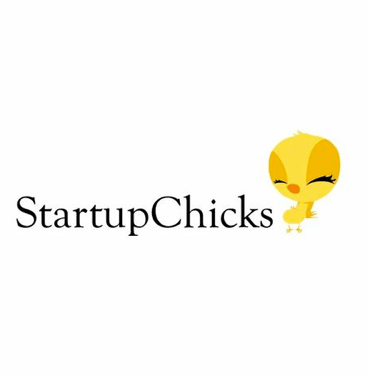
The StartupChicks mission is to build a world-wide community of like-minded female founders, to educate, coach and mentor entrepreneurs to help accelerate their businesses, and to inspire aspiring female entrepreneurs to take the leap.
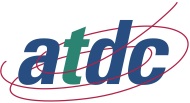
The Advanced Technology Development Center (ATDC) is a startup accelerator that helps technology entrepreneurs in Georgia launch and build successful companies. Founded in 1980, ATDC has helped create millions of dollars in tax revenues by graduating more than 130 companies, which together have raised over a billion dollars in outside financing. Headquartered in Atlanta’s Technology Square, ATDC serves as the hub for technology entrepreneurship in Georgia. ATDC provides business incubation and acceleration services to hundreds of startups through coaching, connecting and community. Membership is open to all technology startup companies in Georgia, from those at the earliest conception stage to revenue generating, venture-fundable companies.
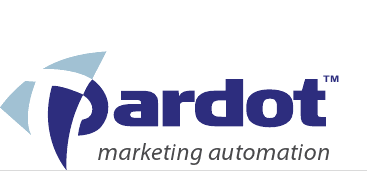
?Pardot is a B2B cloud marketing automation software provider that increases revenue and maximizes efficiency for companies with multi-touch sales cycles. Pardot’s platform features CRM integration, email marketing, lead nurturing, lead scoring and ROI reporting to help marketing and sales teams work together to generate and qualify sales leads, shorten sales cycles, and demonstrate marketing accountability. Pardot offers affordable pricing for the SMB market.

Social Fortress is data security and information privacy reinvented. Backed by the people who originally invented it. For both the enterprise and the consumer.

Badgy delivers “SEO for Social” for major brands, increasing the reach of their content on Facebook and Twitter. It’s the fastest and most seamless way for a brand to operate a social loyalty program. Most recently, we’ve made it dead simple to get any Facebook app page using the extremely effective Facebook Timeline Actions.

CodeGuard provides automatic cloud website backup and restore built upon Amazon Web Services: WordPress, MySQL, and FTP/SFTP. Restore files or entire sites whenever your want, and be notified when content on the site changes. Launched May 2011 at TechCrunch Disrupt – NYC, CodeGuard received the Audience Choice Award. Since then over 4 billion files have been examined and they recently announced the closure of a 1.3M Series A financing.

Collectors are the best consumers…crazy and passionate. CollectorDASH gives collectors a community-based experience making collecting more fun and affordable. With an innovative and integrated solution, the CollectorDASH platform is set to disrupt this multi-billion dollar market.

In the growing e-commerce market, small and medium businesses with online stores often choose to drop-ship products direct from supplier to customer to compete with the big players. eCommHub is a drop shipping platform that integrates with your online store to automate inventory management and order fulfillment through a third-party, effectively allowing you to expand product offerings, route orders intelligently, and minimize backorders. With its easy setup process and pay as you grow? pricing, eCommHub can serve smaller online retailers, allowing them to grow their business, increase their margin and improve customer retention.

Employees today are publishing and sharing their valuable product and process optimization ideas almost everywhere except where they are needed the most – inside their own companies. What we do at IdeaString is help companies capture the innovation and genius of their employees, customers and partners —then efficiently identify the best ideas so they can put them to work in their own business – instead of having to read about it on the internet, in the media or even from a direct competitor. IdeaString’s patent-pending technology puts the human spirit at the center of innovation – every employee’s unique talents and behaviors are intelligently leveraged to optimize the innovation process for richer, more creative Ideas that equals more valuable outcomes for business.

We’re fans of innovation and we’re completely sold on startups. It’s in iFusion‘s DNA. In addition to providing chief marketing officer counsel on a fractional basis, we also provide a full-range of marketing services to emerging growth companies. We’ve been in the trenches and understand the unique demands of taking a start up from idea to market. Ours is a customer-centric approach to marketing that raises awareness, nurtures leads and generates revenues.

TAG educates, promotes, influences and unites Georgia’s technology community to foster an innovative and connected marketplace that stimulates and enhances Georgia’s tech-based economy.
Raleigh-Durham

Special thanks to the fellows at GBW Strategies who helped us organize the event.
GBW Strategies is a new era, Triangle-based public relations and marketing firm serving clients such as Facebook and the Cherokee Challenge.

StrikeIron is the leader in Data-as-a-Service (DaaS), delivering data quality and communications solutions via our cloud platform IronCloud. We provide address verification, email verification, phone validation, phone append, SMS text messaging, and sales tax solutions to customers in a variety of markets. Our solutions are delivered as Web services that can be easily integrated into any application or system. Additionally, our solutions are pre-integrated into leading platforms like: Magento, Eloqua, Salesforce.com, Informatica, Oracle CRM On-Demand and more.

American Tobacco Campus has evolved from an abandoned industrial husk to a thriving hub for cutting edge companies, restaurants and festivals. In addition to longtime tenants Burt’s Bees and global advertising firm McKinney, American Tobacco recently welcomed a R&D arm of HTC. Late last year, Brooklyn-based Wireless Generation chose the campus for a development branch expressly because of its cultural verve and access to top talent.

American Underground (inside American Tobacco) is home to the most capitalized technology accelerator in the southeast, startups, a gaming incubator, and resources such as NC IDEA and CED The Underground has become a model for other cities eager to foster entrepreneurialism, and an attractive asset to larger companies looking for spark, ideas and talent.

Triangle Startup Factory, the most highly capitalized technology accelerator in the southeast, runs an intensive, three month program customized for early stage startup companies. Startups receive seed capital, hands-on mentorship, and access to a network of active angels, veteran startup founders, and experienced technology experts.

Digitalsmiths is the technology leader in video search and recommendation; with customers such as Warner Brothers and Paramount.
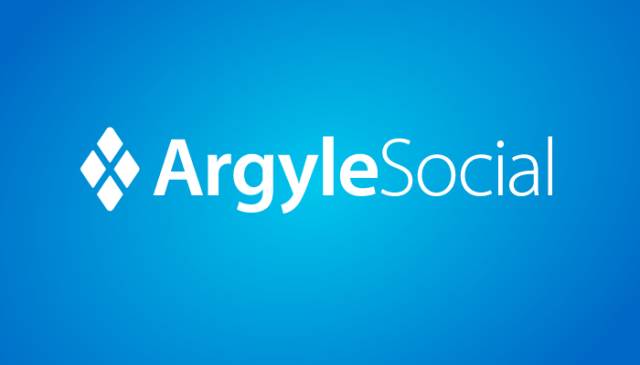
Argyle Social is a Durham based marketing software company committed to helping their customers “harness the social channel and bend it to their will.
Netsertive drives increased local sales opportunities and targeted online exposure by providing technology-driven, high-performance online marketing to businesses and their related brands.

Geomagic is a leading provider of 3D software for creating digital models of physical objects.

SciQuest helps organizations streamline their entire source-to-settle process, and is the only company that provides the scale, expertise and transparency that your organization requires to improve your bottom line.

Relevance delivers open source software solutions to help businesses succeed.

Sharefile/Citrix provides business solutions that are enabling mobile workstyles and powering cloud services.
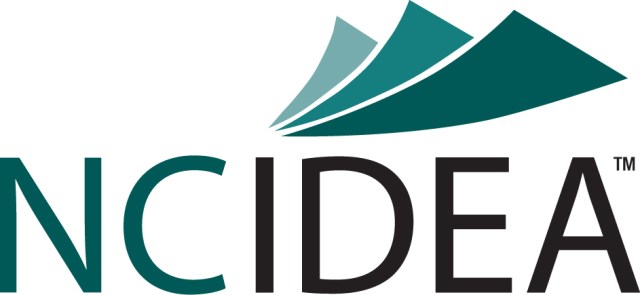
NC Idea is a 501(c)(3) not-for-profit organization created to serve as a catalyst for young, high-growth, technology companies in North Carolina. They help these innovative companies mainly by providing early financing in the form of grants.

Groundwork Labs is a catalyst to generate momentum for North Carolina startups and help prepare them for funding opportunities such as grants, accelerators, or angel investment.

Idea Fund Partners is a seed and early stage venture capital firm with offices in Durham, North Carolina and Orlando, Florida. They invest mainly in the Southeast and Mid-Atlantic, focusing on companies developing software, medical devices or other technologies where intellectual property is an important asset and source of differentiation from competitors.

Shoeboxed provides the fastest way to turn a pile of receipts into digital data for effortless expense reporting, accounting, bookkeeping, and tax preparation.

Bandwidth.com provides Internet and telephone solutions to power business.

ReverbNation provides a central site for musicians, producers, and venues to collaborate and communicate.

The Durham Chamber serves the needs of businesses, non-profits and government agencies of all sizes in the greater Durham-area.

The Escapist is a multiple Webby Award-winning internet site focusing on games and entertainment, and is the leading voice in videogame culture for 4 million fans worldwide. This year, The Escapist will host the Escapist Expo, North Carolina’s premier consumer convention, which will unite fans of videogames, tabletop games, comics, music and more in a celebration of everything great in multi-media escapisim.

Contactology is the go-to provider of email marketing software for white labeling, API integrations, enterprise and startups. Marketers know we’re the ESP they’ll never outgrow.

inMotionNow is a leading provider of workflow solutions for the enterprise creative department, facilitating efficiency and productivity in the approval process for print, video, and interactive content. The company’s flagship product, the inMotion SaaS application for Creative Workflow Management, enables companies to manage and track their marketing and creative projects in a centralized, online environment. inMotion reviewers can access and markup content online and deliver approval back in minutes, from any internet-enabled device or through the inMotion Mobile Review app for iPhone and iPad.
Charlotte

Special thanks to Packard Place for hosting the event.

NexTable started with an idea to make reservations better and more affordable to our restaurant community. NexTable was founded by a group of dedicated entrepreneurs, restaurateurs and developers. Together with the assistance of local restaurateurs and mentors, we are committed to serving the restaurant industry by creating a revolutionary iPad real-time reservation, table management and marketing system that simply excels in value, innovation, features, and ease of use. Our objective is to liberate restaurants from using manual booking systems and costly competitors.

Virtual Race Bags provides a fully-integrated online platform for Event Directors to efficiently and cost-effectively deliver sponsor messages to event participants. Much more than a simple “virtual goody bag,” Virtual Race Bags delivers sponsor deals, offers and messages to event participants using an online platform that is customized for each event. In addition, through our network of events, national brands can reach over 1.5MM participants in 2012. Virtual Race Bags was founded in 2010 by a team seeking to leverage their professional experience in the Endurance industry and as Athletes to help significantly improve upon the iconic race bag.

Founded by a team of compassionate doctors, WeRx.org believes that all patients deserve the right to be fully informed about their healthcare. WeRx.org provides a community of caring advocates and patients a platform to share and compare the most up-to-date prescription drug costs between their local and online pharmacies. If you believe that every American deserves the right to have access to their needed medications, join us!

Autopilot allows you to book a vetted, professional driver on demand when you can’t, shouldn’t, or simply don’t want to drive your own vehicle. You can reserve a driver with the push of a button, track their arrival, and enjoy the benefits of automated, cashless payments all from your mobile device.
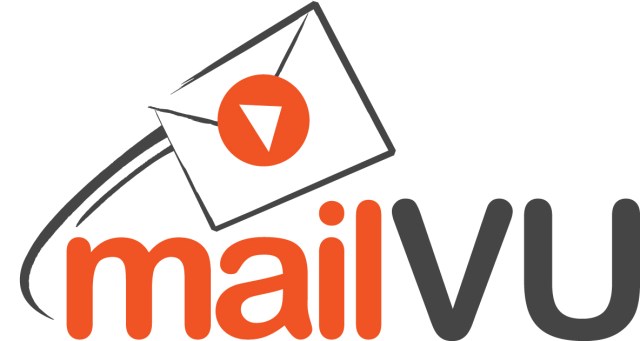
mailVU.com provides an business video platform to service providers. Our API and private label accounts enable businesses to easily integrate video recording and distribution functionality into their own service. mailVU’s combination of mobile and computer apps allow real-time video recording of testimonials, pitches, applications, or personal messages and presentations. Customers access a private content library where videos can be viewed and managed, and then distributed in a variety of manners including social media, newsletters and email, or embedding onto websites.

inMotionNow is a leading provider of workflow solutions for the enterprise creative department, facilitating efficiency and productivity in the approval process for print, video, and interactive content. The company’s flagship product, the inMotion SaaS application for Creative Workflow Management, enables companies to manage and track their marketing and creative projects in a centralized, online environment. inMotion reviewers can access and markup content online and deliver approval back in minutes, from any internet-enabled device or through the inMotion Mobile Review app for iPhone and iPad.
Greenville:

Umatch combines cutting edge technology, proven research and retention principles, and dynamic machine learning into a proactive, holistic approach to improving enrollment yields, student retention rates, and graduation rates.

NEXT is an economic development program of the Greenville Chamber uniquely focused on the growth and attraction of early-stage knowledge-based companies in Greenville, South Carolina.

The Iron Yard provides innovation, education, coworking, mentorship, capital, and events for the technology and design communities.

The Upstate Carolina Angel Network, LLC (UCAN) is a group of accredited investors located in Upstate South Carolina who invest in and support start-up and early-stage, high-growth businesses in the Southeastern United States. Since its inception in 2008, UCAN has invested more than $5.6 million in 22 companies.

The mission of the Arthur M. Spiro Institute for Entrepreneurial Leadership is to support educational, research and outreach programs that promote entrepreneurial activity and economic development of the region, state and nation. The focus is on wealth creation through entrepreneurial activity.

Dealer Ignition is the fastest, easiest, most effective way for brands and dealers to market online.

Servosity’s Mission is to: Deliver Mission-Critical Backup and Disaster Recovery to MSPs and IT Resellers in a way that makes their brain do the happy-dance.

Mailprotector provides a suite of SaaS based email security and management solutions to over 3,000 organizations across six continents.

Foxfire specializes in Warehouse Management Software solutions and services. Our warehousing software is available as Level 1: Inventory Management, Level 2: WMS Express, and Level 3: WMS Enterprise. Foxfire warehousing software is ideal for start-up to mid-sized warehouses that want to optimize production and processes. Foxfire WMS provides the flexibility to use the system as is or to configure to exact specifications.

RAP Index is a key contacts software service, developed by advocacy experts for advocacy professionals, that uses a patent-pending scoring process to decisively identify and measure the Relationships, Advocability and Political Capital of an organization’s stakeholders, to find their key contacts and activate their best messengers. RAP Index is an indispensable service that helps organizations Know Who They Know? from the Capital to Main Street.

Fusion Web Clinic is the smartest Electronic Medical Record (EMR) system in therapy. It is the first and only system that automatically keeps track of daily, required tasks for each staff member, and graphs patient progress. Fusion allows you to work smarter, not harder.

Vigilix helps companies improve the value of their technical support services through PCI validated proactive monitoring and remote access. Currently over 20,000 systems are supported by companies using Vigilix’s POS Monitoring & Management solution.

ProActive Technology delivers dynamic solutions to help clients identify what data is necessary for improved business performance and then to develop the most efficient software for that purpose. Specializations include SharePoint Development, Custom Programming, and Database Management. ProActive provides fully-managed, worry-free custom software development that’s sensitive to your budget, schedule, and business model.

Loc Engine: You are here. They are there. Let’s share. Real-time tracking and location management.

tribr is taking the hassle out getting together with a group of your friends. More fun with your tribe, and less hassle!

Pathwright is a platform for creating, teaching, and selling beautiful online courses.

Eleos Technologies is on a mission to eradicate fax machines from the face of the earth. Our cloud- based mobile platform enables businesses to capture documents and photos from remote workers and customers.